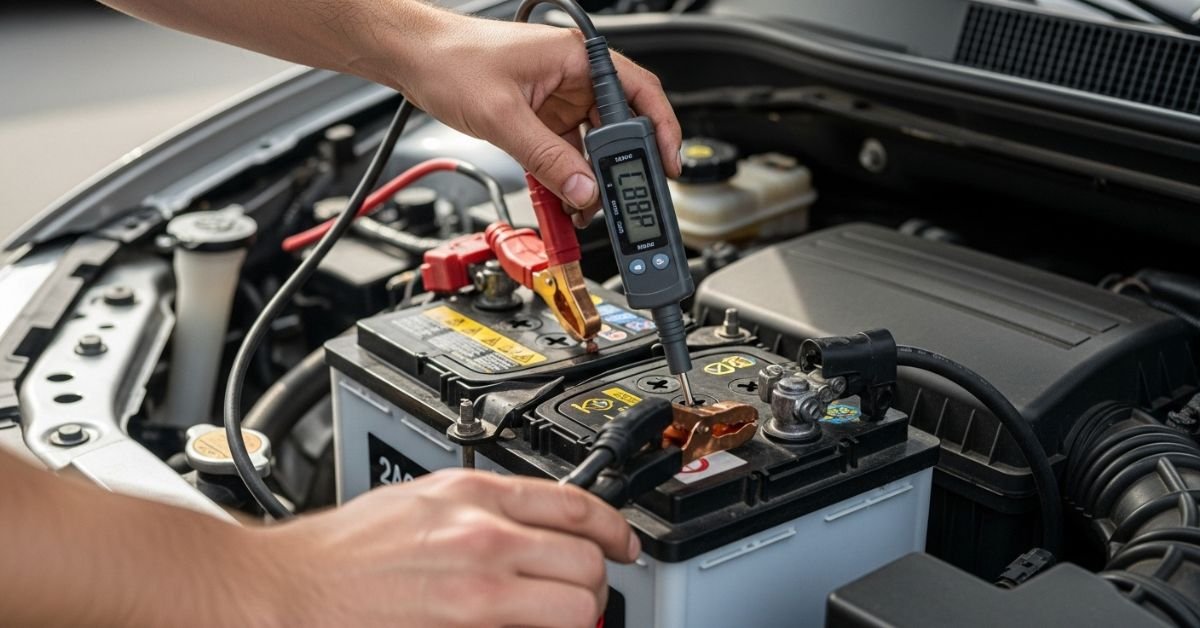Car batteries play a crucial role in keeping your vehicle running smoothly. Yet, many of us take them for granted until they leave us stranded on the side of the road. Knowing how long car batteries last is essential for every driver. The lifespan of a battery can vary significantly based on several factors, and understanding these can help you avoid unexpected breakdowns.
From knowing when to replace your battery to recognizing the signs it might be failing, this guide will equip you with valuable insights. Plus, we’ll share some practical tips to extend its life and what to do once it’s time for a replacement. Let’s dive into everything you need to know about car batteries!
Contents
Understanding Car Batteries
Car batteries are essential components of your vehicle’s electrical system. They provide the necessary power to start the engine and run various electrical accessories like lights, radio, and air conditioning.
Most car batteries are lead-acid types, consisting of lead plates submerged in an electrolyte solution. This chemical reaction generates electricity.
Typically, a standard battery has six cells that work together to produce around 12 volts when fully charged. The capacity can vary based on the make and model of your vehicle.
Understanding how these batteries function is key to maintaining them effectively. Regular maintenance can prevent issues like corrosion or sulfation, which can hinder performance over time.
Knowing the basics about your car battery helps you recognize its importance in ensuring a reliable driving experience every day.
Factors That Affect Battery Lifespan
Several factors can significantly impact the lifespan of your car battery. Temperature is a critical one. Extreme heat can cause battery fluid to evaporate, while severe cold can reduce its capacity.
Driving habits also play a role. Frequent short trips prevent the battery from fully charging, leading to premature wear. If you often make quick drives without giving your vehicle enough time to recharge, you may face issues sooner than expected.
The type of battery matters too. Lead-acid batteries typically last three to five years under normal conditions, while AGM and lithium batteries may offer longer life spans due to their advanced technology.
Proper maintenance cannot be overlooked. Corrosion on terminals or loose connections can hinder performance and lead to early failure if not addressed promptly. Monitoring these aspects will help ensure that your car’s heart continues beating strong for as long as possible.
Signs Your Car Battery is Dying
A struggling car battery often shows clear signs. If your engine cranks slowly when starting, that’s a red flag. You might notice the headlights flickering or dimming while you drive, indicating insufficient power.
Another common symptom is an illuminated dashboard warning light. This can indicate various issues, including battery troubles. If your vehicle struggles to start after sitting for a few days, it could be time to investigate further.
Listen for unusual clicking sounds when turning the key in the ignition; this may suggest your battery isn’t holding a charge effectively. Additionally, if you find corrosion around the terminals or experience frequent jump starts, these are indicators that your battery is nearing its end.
Pay attention to these signals to ensure you’re not left stranded on the road with a dead battery at an inconvenient moment.
Tips for Extending the Life of Your Car Battery
Keeping your car battery healthy can save you time and money. Start by ensuring all electrical components are turned off when the vehicle isn’t running. This simple habit helps prevent unnecessary drainage.
Regularly inspect battery terminals for corrosion. A clean connection enhances performance and extends lifespan. If you notice buildup, gently clean it with a mixture of baking soda and water.
Extreme temperatures can take a toll on batteries. Whenever possible, park in shaded areas or use a garage during harsh weather conditions to protect your battery from heat or cold stress.
Consider getting your battery tested periodically, especially before summer and winter seasons. Many auto shops offer free testing services that provide insight into its health status.
Taking shorter trips may not give your battery enough time to recharge fully; longer drives help maintain optimal charge levels while keeping the alternator working efficiently.
How Often Should You Replace Your Car Battery?
Car batteries typically last between three to five years. However, this can vary based on several factors. Consider the climate you live in; extreme heat or cold can shorten battery life significantly.
Regular maintenance plays a crucial role as well. Keeping terminals clean and ensuring tight connections can help extend its lifespan.
It’s wise to have your battery tested annually after it hits that three-year mark. Many auto shops offer free testing services.
Pay attention to any signs of weakness like slow engine cranking or dimming headlights, which may indicate it’s time for a replacement sooner than expected.
When replacing your car battery, choose one that meets the specifications outlined in your owner’s manual for optimal performance and longevity.
What to Do with Old Batteries
When it’s time to part ways with your old car battery, proper disposal is essential. These batteries contain toxic materials that can harm the environment if thrown away carelessly.
Start by checking local regulations on battery disposal. Many areas have specific guidelines for hazardous waste.
Look for recycling centers or automotive stores near you that accept used batteries. Most retailers will take them back, often offering a discount on your next purchase as an incentive.
If possible, consider donating functioning batteries to community organizations or individuals in need.
Never attempt to dismantle a battery yourself. The chemicals inside can be dangerous and should only be handled by professionals.
Always store old batteries upright and in a cool, dry place until you’re ready to recycle them. Taking these steps ensures your old battery doesn’t end up polluting landfills while promoting eco-friendly practices.
Conclusion
Understanding the lifespan of your car battery is essential for maintaining a reliable vehicle.
Recognizing the signs of wear can save you from unexpected breakdowns.
Regular maintenance and proper care enhance performance, extending its life significantly.
It’s also wise to be proactive about replacements when necessary. This ensures you’re never left stranded.
Disposing of old batteries responsibly contributes to environmental health, too.
Each step you take towards understanding and caring for your vehicle’s battery pays off in convenience and peace of mind.
Stay informed, stay prepared, and enjoy smoother journeys ahead!
Also Read Latest Post:
How Much Does Car Tint Cost? – 2025 Price Guide & Factors
FAQ
When it comes to car batteries, questions often arise. Here are some common queries and their answers.
What is the average lifespan of a car battery?
Typically, most car batteries last between three to five years. However, this can vary based on several factors such as climate and driving habits.
How do I know if my battery needs replacing?
If your engine cranks slowly or you notice dimming headlights, these could be signs that your battery is nearing the end of its life.
Can extreme weather affect my battery’s performance?
Yes, both hot and cold temperatures can significantly impact a battery’s lifespan. Extreme heat can cause fluid evaporation while cold conditions can reduce starting power.
Is it safe to jump-start a dead battery?
Yes, but it’s essential to follow safety precautions. Ensure connections are secure and avoid letting the two vehicles touch each other during the process.
Do new batteries come with warranties?
Most new batteries do carry warranties ranging from one to three years. Always check before purchasing for peace of mind against defects or premature failure.
How should I dispose of an old car battery?
Old batteries should never be thrown in regular trash due to hazardous materials inside them. Take them to recycling centers or automotive stores that offer disposal services instead.
Understanding these aspects will help keep your vehicle running smoothly for longer periods while ensuring you’re prepared whenever issues arise with your car’s power source.




